#Islamic values
Explore tagged Tumblr posts
Text
Pakistan releases new war anthem Tayyar Hain Hum - Allah hu Akbar | The Express Tribune
Listen to article Pakistan has released its new war anthem titled “Tayyar Hain Hum – Allah Akbar” amidst the current tense situation, capturing the heart of the nation. The stirring lyrics and captivating voice have set the tone, with the anthem’s powerful lines, “We are victorious with God’s grace, ready to fight”, adding to the emotional fervour. In the context of escalating tensions with…
#Allah Akbar#anthem release#faith and piety#India tensions#Islamic values#military morale#national pride#Pakistan Army#Pakistan war anthem#Pakistani military#ready we are#war preparations
3 notes
·
View notes
Text

What Makes Marriage Beautiful - Values of Islamic Marriage
Discover the essence of a beautiful marriage through Islamic values. Explore how love, respect, and commitment create lasting bonds in your marriage.
0 notes
Text
Celebrating Eid al-Fitr: Fostering Joyful Traditions In Parenting - H&S Education & Parenting
Nurturing Family Bonds & Cultural Roots During The Festive Season As families around the world prepare to celebrate Eid al-Fitr, the joyous occasion marking the end of Ramadan, parents have a unique opportunity to create lasting memories and instil meaningful values in their children. Eid al-Fitr is not only a time of feasting and festivities but also a time for reflection, gratitude, and acts…

View On WordPress
#Celebration#Charity#childhood memories#COMMUNITY#cultural heritage#cultural pride#Diversity#Eid al-Fitr#family bonding#family traditions#Festive Season#Generosity#good parents#gratitude#H&S#H&S Magazine#H&S Magazine Kenya#handmade crafts#Islamic values#Joy#Magazine Kenya#Parent-Child Relationship#parental challenges#parental problems#parenting#parenting style#parents#parents magazine#patience#Ramadan
0 notes
Text
[Book Review] 🌻Will You Love Me?🌻 by Norhafsah Hamid
🧮 Score: 3.55/5.00 . 📌“...I sincerely believe that knowledge can also be shared through stories.” - Norhafsah Hamid.

■ Kudos sister! Allahumma barik! I valued the existence of this book very much since I rarely see books on this concept in our local market. (Maybe it is just me, not well-exposed) . ■ This book is a part of Norhafsah Hamid’s “Trilogy” of the three musketeers; Hassan, Amy and Nieza. Book #1 -- Time will Heal; centered on Hassan, book #2 -- Will You Stay?; focused on Amy, and this book #3 -- Will You Love Me?; Nieza is the protagonist. I enjoyed all the quotes from Rumi. <3 .
■ When I started the book, I was expecting a brief introduction to Nieza’s life, followed by her love story with Harris. But, I was surprised. The book explores various aspects and themes. Family, friendships & the unseen! The main theme should be keeping our faith and reliance only on Allah SWT. Within the narratives, the author includes many duas, supplications, tazkirahs & other useful facts.
This is a great novel for adolescents and young adults! Packed with lessons. .

■ I highly appreciate the author's idea in highlighting the issues of Malay superstitions in our society and how to deal with them. A much-needed awareness campaign, praise-worthy! The surprise elements in this book are good, too. . ■ However, the book is less enjoyable due to the sentence structure. The storytelling is not as smoothly English as I would like it to be. Sometimes, it feels stiff, ‘kaku’, as if the sentences were translated from other languages or forced to fit the paragraph.
Also, I find the dialogue to be childish. Didn’t reflect them as working adults. Their conversations give “The Lizzie McGuire” vibes. The language used is seemingly polite and innocent. I mean if one, or two characters is naive is okay, but almost all the characters are like that, even the “villains”, who sound like school bullies in children's books, mean yet still naive.
Moreover, Nieza was supposed to be a loner growing up until she met Hassan & Amy in the UK. I just can’t understand why she felt lonely when her friends are not with her though. It feels contradicting. And her shallowness managed to make me annoyed. She was portrayed to be the patient & wise one. But what I get was she’s quite fragile and sheltered. She’s pampered by her loving family. Or most people are actually like the characters in the book? And I am the weird one? Perhaps, I am too fussy.
In an attempt to be romantic, Harris’ character can be a bit stalker-ish. I’m sorry that I have too much criticism. .

■ Nonetheless, in most parts, the descriptions of many scenarios are pretty sweet. I found myself smiling from time to time. Towards the end, it is a bit sad. I understand Nieza’s grief. The first cut is always the deepest. . ■ Overall, this book is attractive to teenagers. Simple, well-wrapped plots, mostly predictable. Not many emotions felt as I was anticipating. I did not shed any tears. Could be because I am older now and have experience? To compare, Novel Ayat-Ayat Cinta is way heavier. The emotions changed as my perspectives changed from when I first read that book to the time I re-read the book a few years later. . --- ● Buy new copies here:
● Buy a preloved copy here:
#will you love me?#Norhafsah Hamid#English Novel#Young Adult#Islamic values#Iman Publication#Malaysian Author#bibliophile#book review
1 note
·
View note
Text
I dont need anyone", I remember a friend answering to this,
کسی کی ضرورت نا ہونا بھی انسان کو کتنا قابل رحم بنا دیتا ہے
And suddenly i remebered the simple sentences of people.
چائے پیوگی ؟
تمہیں یہ پس��د ہے نا اسی لیے
گھر پہنچ کر بتانا
دوائی لے لی؟
کھانا کھا لیا ؟
پریشان مت ہو میں ہوں نا۔
How terrible it is to not value this? How heart breaking it would be to not notice such people? "الله نے لوگوں کو لوگوں کے لیے بنایا ہے۔ "
#islam#muslim#reminder#islamicreminders#allah#muslimah#deenoverdunya#deenislam#alhamdulillah#religion#thoughts#value#mindset
10 notes
·
View notes
Text
"Our values should extend beyond the present, beyond our nation,
and beyond our species 🌊 !".
#Ethical#considerations#downfalldestiny#perspectives#Life#downfall#Choices#Lesson#magic destinations#magical world#magic moments#nation#species#present#values#Islam#Muslim#Reality#Earth#People#Sea#Window#Calm#Weather#Waves#Ocean
46 notes
·
View notes
Text
The Power of Effort Over Wishes: My Three Wishes to a Genie
Daily writing promptYou have three magic genie wishes, what are you asking for?View all responses If a genie offered me three wishes, my first instinct would be to reject them for myself. Photo by Boris Hamer on Pexels.com The reason is simple: I believe that what we receive without effort lacks the value and fulfilment of something we earn through our hard work, perseverance, and…

View On WordPress
#Aladdin and the Magic Lamp#Alf Laylah wa-Laylah#Antoine Galland#Arabian culture#Arabian Nights#beliefs#challenges#dailyprompt#dailyprompt-2105#dedication#Disney#djinn#effort#focus#genie#goals#Growth#Islamic culture#jinn#joy#learning#love#meaning#One Thousand and One Nights#Passion#principles#Raffaello Palandri#resilience#understanding#values
8 notes
·
View notes
Text
So, related to what a mutual has re-blogged, implying that the Trump administration is scapegoating Jews to gin up antisemitism. This article makes a very good case for that happening, but I do, as a Muslim, want to say that while Trump may be using antisemitism as the hammer, that hammer is being used against pro Palestinian activists. Trump is wielding a hammer that will hurt both of us. I would like to think that the American people are smart enough to realize that the Jews are not persecuting anybody right now, Trump is persecuting pro Palestinian activists, but judging from the 2024 election results, I don’t think Americans are smart enough to see that difference and I do think that Trump‘s actions will unfortunately scapegoat the Jews. 
#jumblr#us politics#islam#Palestine#donald trump#all of this is also a worrying distraction from what is happening in Gaza by Netanyahu#I feel like Netanyahu is an unfeeling monster who does not reflect Jewish values
3 notes
·
View notes
Text
Marry a person who from the beginning, sees your value the way God sees it, and sees it consistently.
#Islam#marriage#deen#spilled thoughts#muslimah#muslim#zawaj#god#value#women#self respect#FYP#tumblr fyp#fypage
7 notes
·
View notes
Text

Discover the dangers of free mixing in Islam, its impact on faith and modesty, and learn how to uphold Islamic values in social interactions.
0 notes
Text
Ramadan Reflections: Fostering Gratitude & Generosity In Children - H&S Education & Parenting
Exploring Creative Ways To Instil Values Of Thankfulness & Giving During The Blessed Month The holy month of Ramadan is not only a time for fasting and spiritual reflection, but also an opportunity to instil important values in our children. As parents, we have the unique chance to nurture qualities of gratitude and generosity in our little ones, shaping their characters and preparing them to be…
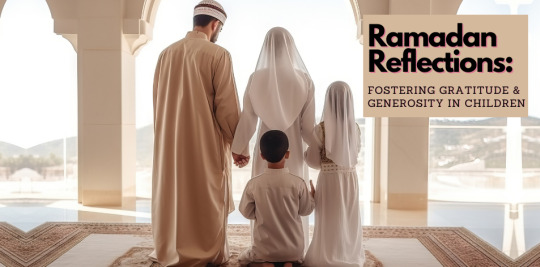
View On WordPress
#bonding#Charity#Child development#Childhood Development#children#communication#COMMUNITY#compassion#education#education & parenting#Empathy#family traditions#forgiveness#Generosity#good parents#gratitude#H&S#H&S Magazine#H&S Magazine Kenya#Islamic values#Magazine Kenya#Parent-Child Relationship#parental challenges#Parental Influence#parental problems#parenting#parenting style#parents#parents magazine#patience
0 notes
Text
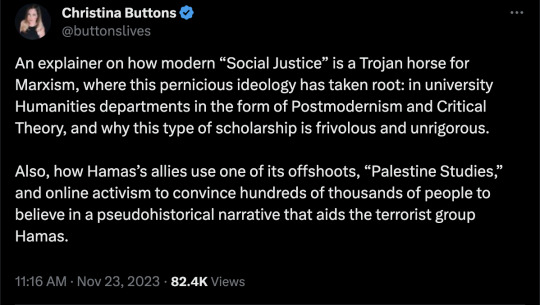
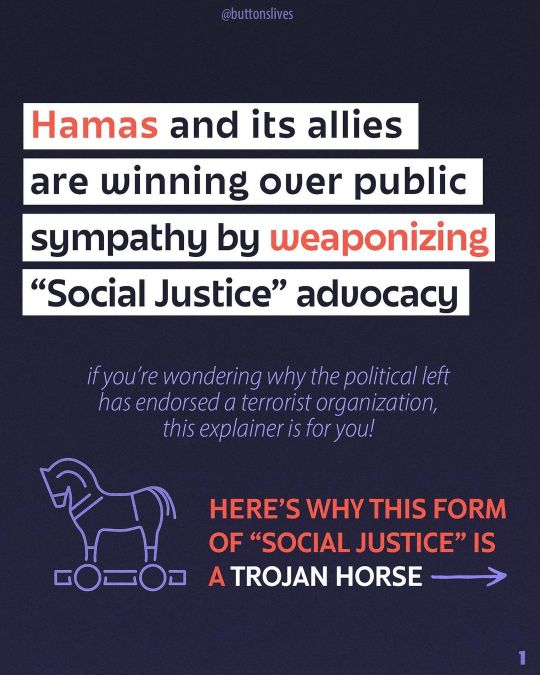




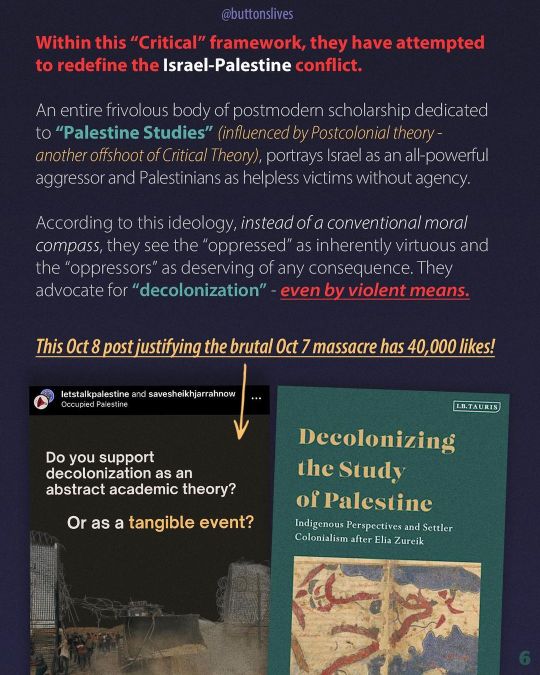
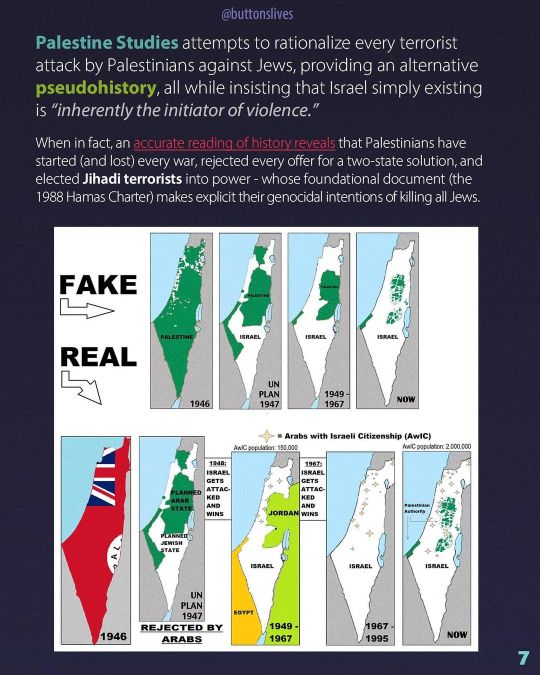



#Christina Buttons#postmodernism#critical social justice#critical theory#liberalism#liberal ethics#liberal values#hamas#hamas propaganda#far left propaganda#islam#islamic terrorism#hamas terrorism#hamas supporters#palestine#israel#oppressor#oppressed#woke mind virus#intersectional feminism#wokeness#woke#wokeism#cult of woke#Palestine Studies#wokeness as religion#propaganda mills#academic corruption#grievance studies#religion is a mental illness
27 notes
·
View notes
Note
This whole thread is so....
https://twitter.com/orikkunn/status/1754831427903074488?t=WbVE9Fu585pxZFXPbr_JlQ&s=19
It's pissing me off actually and I search the word hijab on their account and in one of their tweets they said "I think hijab is a bad thing" ??? I need non-muslims who speak on Islam without any knowledge to stfu
i'm going to apologize beforehand if this is upsetting in any way bc i'm sure you were expecting a different response but while i feel like op's wording could have been better in this thread specifically—i like their wording in this thread more—i do generally agree with them. i definitely understand there's a gut reaction to any critique of islamic practices esp in the context of modern orientalism and islamophobic sentiment, but i also think that muslims (and people of any religious faith, really) can simultaneously acknowledge that some criticisms of faith, while driven by racism and/or xenophobia, are also validly driven by a worthwhile contention with women's material circumstances over the course of history. in the other thread i linked above i think op is very much correct in that it's not constructive nor useful to criticize individual people. many individuals do choose to dress more modestly of their own volition and are privileged enough to have that available to them as a choice and nothing more bc of the environment they grow up in and the familial interpretation of religious tenets they're taught. but i don't think people are wrong when they acknowledge the larger context within which women are advised to dress modestly and how those standards of modest dress compare with those imposed on men in comparison. there's an undeniable dichotomy there and at least in my islamic upbringing i've been taught that the way some of these things diverge along the lines of gender is preordained and not meant to be perceived as inherently oppressive towards one gender or the other. a thing is simply bc it is. but religion isn't really something you can view within a vacuum much as that would be ideal. it is connected to the material circumstances of women in the real world and i do allow myself to sit with that reality even if it's weird to process at times bc i still consider myself a muslim and have no plans on ex-communicating myself
personally i like to dress modestly in the sense that i don't wear very exposing clothing. i've grown up wearing pants for my entire life. my parents are lax enough that i'm allowed to wear t-shirts but i can't wear anything where my armpits are directly exposed so that means no sleeveless tops. i can't wear anything with a deep neckline either unless i have a higher positioned undershirt on underneath. and again, i'm not particularly bothered by any of that. i do toe the line on a few occasions but generally i'm ok with how i dress bc by now i'm used to it. that being said, i know the reason i've come to be okay with dressing this way is bc it's how i was taught to dress, and towards the specific end of maintaining modesty and emphasizing on the shape of my figure as minimally as is possible without having to outright wear a bag lol. that is at large a structural reality of muslim practice towards women, regardless of what individual women choose to do in their own homes where they have the liberty to choose. and as i mentioned above, i do think we have to sit with that reality even if we acknowledge it opens us up to abuse by other people who may not have the best intentions. this is why, for example, i've really come to frown upon the way ex-muslims (esp when they're women) are almost mocked by the extant muslim community for logically reacting to patriarchal oppression under the guise of religion. bc at the outset, materially, there is no choice presented to these people. and even if there is ideologically a choice within the tenets of the religion itself, with respect to women in particular, there is still a defined gender dichotomy and hierarchy that cannot be denied and that is quite regularly used to perpetuate the oppression that many of them try to escape
what's hard to do and what requires a knowledgeable, concerted effort on our part as muslims is trying to balance the nuance of the oppression we are accessory to against the nuance of our own oppression for who we are. it's certainly cruel that we have to do so much to parse all of this because racist, xenophobic imperialists are incorrigible people who will co-opt anything if it's beneficial to them. but all the same, we do have that responsibility at minimum. we have to learn to sit in the uncomfortable reality that while many of us as individuals may choose to practice the way we do, that choice may yet be colored by how we grew up within organized religion, and it obscures our ability to recognize that while we think it's a choice for us as individuals, it's certainly not a choice on a structural level, and that's something we should vehemently argue against maintaining the status quo of
#again i apologize and i really tried to word this as kindly as possible so i hope my perspective is understandable#my relationship with islam is weird bc again i don't ever plan on Not being muslim#but i'm also very hyperaware of the fact that many of the things i do are a product of what i was taught#and i was taught those things with certain ideals and values in mind#which at present unfortunately do go against what i believe about women's liberation in general#and i will once more reiterate that the other thread i linked from op really hits the nail on the head#criticizing individuals isn't a solution nor should it ever be an endeavor we take. the focus should always be on a perpetuated system#our criticisms should be of institutions and organized religion as a structural tool of oppression#outbox
10 notes
·
View notes
Text

Praise Jesus Everyone!
By all means, let us put the safety of our beloved and filthy rich CEOs first!
#religion#christianity#atheism#baptist#mormonism#catholicism#jehovah witness#islam#judaism#scientology#dumb ass maga#republican assholes#republican values
5 notes
·
View notes
Text
aight ok now that i've watched ep 7 i see some folks are review bombing KTL on MDL bc of the Arab prince storyline,,,,,, what are our thoughts
#tv: king the land#king the land#lee junho#junho 2pm#im yoona#girls generation yoona#yoona snsd#anupam tripathi#kdrama#local gay watches KTL (and gets diabetes in the process).txt#local gay watches k-dramas.txt#as someone who is not Arab but who is currently in an interesting relationship with religion in general (and is incorporating#multiple practices into my daily life by extension/exploring/dabbling in Islam): is it a stereotype? kind of.#but people writing sh*t like 'this is an offense against Saudi Arabia and MBS' etc etc need to calm the f*ck down#first off MBS is a literal murderer and the Saudi government perpetuates human rights abuses but we're not going there today#the prince is not from SA i think someone said he's from the UAE. Dubai to be more specific + Islam wasn't even mentioned at all#and pls. pls don't get me started with the whole#'princes don't go to clubs'. do you know how many clubs there are in Dubai. do you know how many members of the Gulf royal families#have been caught up in drug scandals and affairs and sh*t. the worse person you could hold up as a supposed standard#for Islamic values and then get mad when people point that out are these folks#he's not even getting drunk in public. he's not even drunk at all ffs he's technically abiding by the decorum#that one would have to have if they were drinking in Dubai so as not to get picked up by the authorities.#and yes i treat SA and the entirety of Europe the same when it comes to the history of abuse and religious extremism#all while claiming to hold up a higher standard. there is hypocrisy in every religious community and they are not excluded#anyway i brought this specific ep up with a friend (Arab Muslim) and they said that the vibe they got from this was Samir and Won#studied together in the UK (obviously) and now he's in Korea and basically having the time of his life teasing Won#but in the end they're meant to reflect each other. he's a more spoiled richer version of Won basically sksksksk#ofc people are getting up in arms bc stereotypes and sh*t and i'm not about to tell you how to feel about it#but don't go spreading misinformation#idk maybe by the end of this feature they'll be best friends. i really hope they will they have such a good frenemy thing going on rn
24 notes
·
View notes
Text
They said, “go where you are valued”.
So I ran back to Allah.
سبحان الله 🤍
#wayoftawakkul#tawakkul#writers on tumblr#islamic#muslimah#muslim#dua#love#valued#almighty#patience#beauty#beautiful#instagram#instagood#islamicpost#islamicquotes#tumblers
7 notes
·
View notes